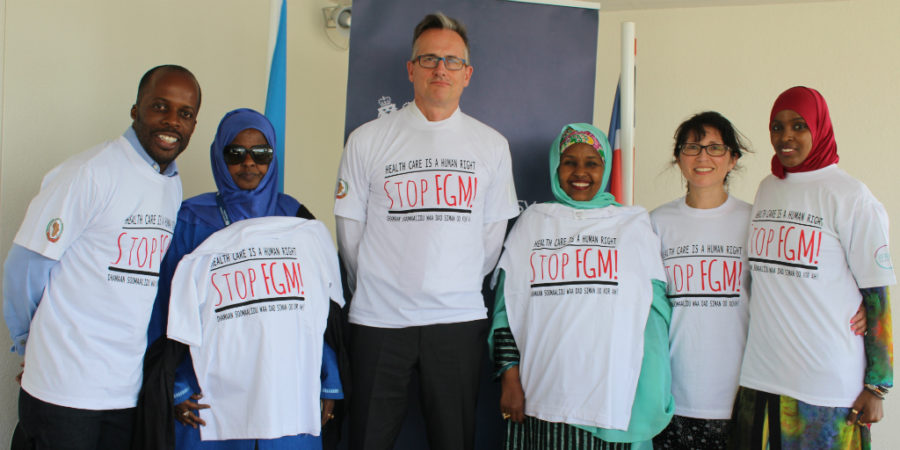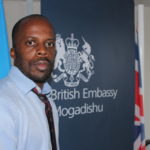7th February 2017 Mogadishu, Somalia
UK and Somalia join hands to eradicate FGM

Where do you start with change when everything seems so difficult and entrenched? That was the question that first greeted me when I started my current role as a Social Development Adviser in Somalia. The data that exists on education, health and employment are not heartening and the country has political and security challenges that are well-known. Speaking in Mogadishu with a group of women about where to start, their answer was laser-sharp:
“We have to start with our bodies! If we cannot even take control of what happens with our own bodies, how can we think of influencing things such as laws, politics and the economy?!”
This blunt introduction to the seriousness and primacy of combating female genital mutilation (FGM) remains with me. FGM is defined by the World Health Organisation as procedures that intentionally alter or cause injury to the female genital organs for non-medical reasons. More than 200 million girls and women alive today have been cut, mostly before they reach puberty. FGM has no medical benefits and causes physical and psychological harm. It is also recognised as a violation of the human rights of girls and women, I’ll spare relating to you the stories of extreme pain and physical problems that result as a consequence. I simply couldn’t imagine nor tolerate the girls in my family going through this process.
The UK has made a commitment to supporting the elimination of all forms of FGM, whether perpetuated in the UK, Somalia or in other countries where we support development.
Through conversations with these women, many share the sentiment that change needs to come from many sources and actors have to speak-up on the matter, not just Somali women and girls. In Somalia, under DFID’s Social Norms and Participation programme (£5m will be spent over 4 years to counter harmful practices that affect girls ) we are supporting an approach that involves girls that have undergone the cut, nascent FGM cutters, politicians, religious and clan leaders and most importantly the community to generate a comprehensive commitment to end all forms of FGM. We are aiming to see at least 190,000 girls spared FGM in Somalia and many more impacted by the message of the programme.
It is not a simple or straightforward process, and we are investing time to learn and monitor what works best in changing attitudes and the practice around FGM. We support the Population Council and three African research institutes through DFID’s flagship programme: ‘Towards ending FGM in Africa and beyond’ to build robust evidence base on what works to end the practice.
Personally, my daily work entails making sure that our partners can talk openly with us about what practical difficulties they are encountering in designing, promoting and measuring change around FGM in Somalia and finding solutions together with them to keep the momentum to end FGM going.
